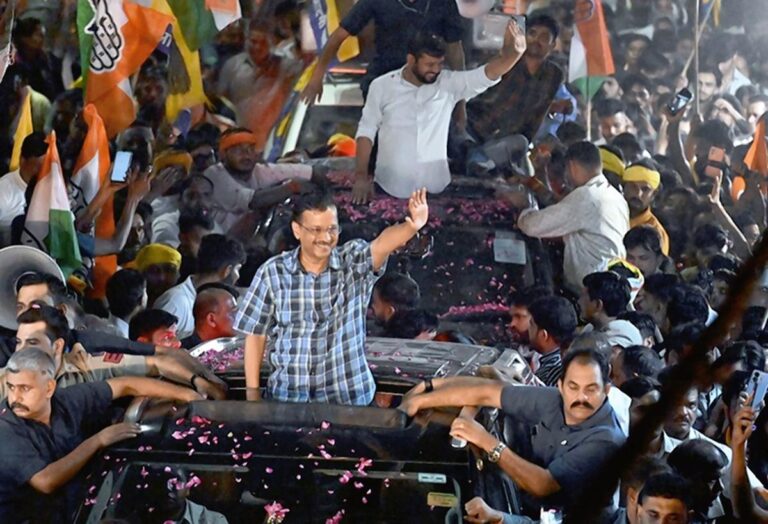debtWhether you’re a new reporter trying to establish your footing in the industry, covering an election can be intimidating, especially when it comes to the House of Representatives elections. Election season brings a constant stream of information and misinformation. There are dozens of speeches to cover, interviews to conduct, and stops to make. Some of these jobs can come with unexpected events that require a quick response. All reporters prepare extensively before an election, but despite our efforts, something tends to happen that changes the direction of our coverage. This means we must always be prepared for the unexpected.
For example, the arrest of Delhi Chief Minister Arvind Kejriwal just before the polls. This was an unprecedented event that no one had expected. On the day of his arrest, I had barely heard any news. But when I got an update that the Enforcement Directorate had arrived at the Chief Minister’s residence, my colleagues and I rushed to the scene and witnessed the Chief Minister being taken away. The arrest threw the Aam Aadmi Party into a crisis and caused it to change its campaign, possibly resulting in a shift in public opinion and affecting the coverage of the election in the national capital.
Other days, I was unprepared to deal with conflicting narratives or unable to trace the origins of stories and beliefs. For example, in Northeast Delhi, where riots erupted in early 2020 over the Citizenship (Amendment) Act, 2019, several people I spoke to told a particular narrative about Indian National Congress candidate Kanya Kumar. They dismissed Kumar as the leader of the “Tukde Tukde Gang,” a derogatory catchphrase for a group that allegedly supports sedition and separatism, but when asked where they had heard this story, many had no suitable answer.
WATCH | Kanya Kumar: Student leaders should never side with the establishment
Similarly, in researching and writing about the contested candidates, I found it difficult to determine which aspects of them were important, which aspects were unimportant and could be avoided, and which aspects were perhaps unimportant but still interesting.
Additionally, we reporters must deal with the fact that there are aspects or events in a person’s life that we just can’t write about, due to a variety of factors. For example, a candidate may have faced a lawsuit years ago. But if the lawsuit was later dropped, would you include that in your story? Similarly, it can be difficult to write about the personal details that shaped a candidate’s motivations.
One day, I was caught off guard, even though I had done my research and discovered important details about a candidate buried in the big news. During the interview, I asked the candidate many personal questions, including what he was doing between campaign stops. When I asked about his children, he choked up and couldn’t speak. I had no idea he had lost a child. A member of his team answered instead. I quickly changed the subject, and we went back to talking about politics.
Most importantly, I didn’t know the impact some of these stories have on readers. Journalists spend their lives chasing stories, with little time to reflect on the events and reports of the previous day. We publish so many stories that sometimes we forget. But our readers don’t forget. I learned that stories can even change readers’ minds about certain issues or people. I found out when a reader called me one day and said, “I want you to write a profile of the candidate in my district, so that will help me decide who to vote for.”
I was excited to hear that, but also nervous. Since that call, as I interview candidates, I’ve made an extra effort to put myself in the shoes of the people in my district and ask the questions that voters want answers to.
satvika.mahajan@thehindu.co.in
This is a premium article available only to our subscribers. To read over 250 premium articles every month,
You’ve reached your limit for free articles. Support quality journalism.
You’ve reached your limit for free articles. Support quality journalism.
You have read {{data.cm.views}} from {{data.cm.maxViews}} Free articles.
This is the last free article.

